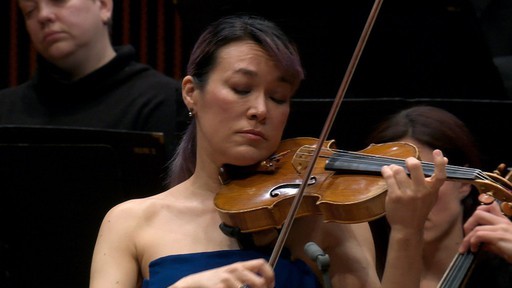
12:36
Associate Director and Editor: Janet Shapiro
Audio: Cameron Wiley, Classical MPR


In 1877, a little-known Czech music teacher applied for the Austrian State Stipendium. The panelists for the artists’ grant included Johannes Brahms, by this time Europe’s most esteemed composer. Brahms took up the young composer’s cause, writing to his publisher Fritz Simrock: “As for the state stipendium… I have enjoyed works sent in by Antonín Dvořák of Prague. This year he has sent works… that seem to me very pretty… Play them through and you will like them as much as I do. Dvořák has written all manner of things: operas, symphonies, quartets, piano pieces. In any case, he is a very talented man. Moreover, he is poor! I ask you to think about it.” With Brahms’s endorsement, Simrock began publishing Dvořák’s music, immediately launching his international career.
Even his eventual celebrity would not extinguish the modesty of Dvořák’s beginnings. Years later, he wrote in reply to an admirer:
I must confess to you candidly that your kind letter took me a little by surprise, because its excessive servility and humility make it seem as if you were addressing some demigod, which of course I never was, am not, and never shall be. I am just a plain Czech musician, disliking such exaggerated humility, and despite the fact that I have moved a bit in the great musical world, I still remain just what I was—a simple Czech musikant.
Such modesty (“musikant” is a Czech term to describe amateurs or street performers) belies Dvořák’s sheer compositional prowess. A similar assessment could be made of the Romance in F Minor, Opus 11: a beguiling gem of a piece, whose immediate charms mask its subtle craftsmanship. Dvořák completed the Romance in 1877, the year of Brahms’s letter to Simrock; the work is based on the slow movement of his Fifth String Quartet, composed in 1873, while Dvořák was yet an unknown quantity to the great musical world.
The lilting four-measure motto presented at the outset permeates the entire Romance, guiding the listener through a series of raptly imagined episodes. The introduction alone, as unassuming as it is perfectly calibrated, is a clinic on orchestration: muted first violins, accompanied by wistful counterpoint in the seconds, followed by clarinet, then muted cellos; a quiet orchestral tuttigradually amasses, before horns, clarinets, a cuckooing oboe at last lead to the entrance of the solo violin, molto espressivo.
Light on bravura virtuosity, the Romance instead glorifies the violin in its soaring lyricism. Dvořák’s gifts for melody and timbre are on ecstatic display, revealing a profound understanding of the instrument’s soul—not only the violin’s, but indeed, each distinct voice in the orchestra. This is music lovingly executed, and with an acumen at odds with its creator’s modesty.
— © Patrick Castillo

We need your support to continue sharing music with people everywhere, completely free of charge.